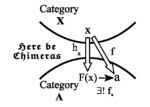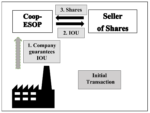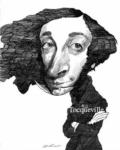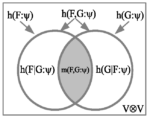Are corporations the problem? Can reforms in the area of corporate responsibility (e.g., more stakeholder governance) lead to any real changes? The goal of the paper is to analyse debates concerning the Citizens United case, corporate personhood, the stakeholder theory, the affected interests principle and, finally, deeper fallacies with respect to the rights of capital embedded in Marxism and conventional economic theories of capital and corporate finance.
Classical Liberalism and the Abolition of Certain Voluntary Contracts
This paper analyzes three contracts and shows that there is indeed a deeper democratic or Enlightenment classical liberal tradition of jurisprudence that rules out those contracts. The ‘problem’ is that the same principles imply the abolition of the employment contract, the contract for renting human beings, which is the foundation for the economic system that is often (but superficially) identified with classical liberalism itself. Frank Knight is taken throughout as the exemplary advocate of the economics of conventional classical liberalism.
Worker Cooperatives and Other “Cooperatives”
When is a “Coop” not really a cooperative? The short answer is whenever the actual activity of the “cooperative” is not carried out by the members but by employees. The problem is, of course, not in cooperation per se but in the hiring, employing, renting, or leasing of people to carry out the supposedly “cooperative” activities of the “cooperative.”
Where do Adjunctions come from?
Category theory has foundational importance because it provides conceptual lenses to characterize what is important and universal in mathematics—with adjunction seeming to be the primary lens. Our topic is a theory showing “where adjoints come from”.
Born Again! The Born Rule as a Feature of Superposition
Where does the Born Rule come from? We ask: “What is the simplest extension of probability theory where the Born rule appears”? This is answered by introducing “superposition events” in addition to the usual discrete events.
Fallacies about corporations
This article comments on Isabelle Ferreras’s “Democratizing the Corporation.” The focus is on the conceptual framing, which arguably contains a number of problems that are quite common on the left and are thus doubly deserving of commentary and explanation.
Opening the gates to Plato’s Heaven
The recipe to “open the gates to Plato’s Heaven” is by minimizing
the role of rivalrous substance and maximizing the role of non-rivalrous form. This creates a whole
series of different processes, positive feedback processes, vicious or virtuous circles, cumulative
circular causality, and increasing returns phenomena, which are analysed in this paper.
The heteromorphic approach to adjunctions: theory and history
In this paper, the history and theory of adjoint functors is investigated. Where do adjoint functors come from mathematically, and how did the concept develop historically?
A new logical measure for quantum information
Logical entropy is compared and contrasted with the usual notion of Shannon entropy. Then a semi-algorithmic procedure (from the mathematical folklore) is used to translate the notion of logical entropy at the set level to the corresponding notion of quantum logical entropy at the (Hilbert) vector space level.









